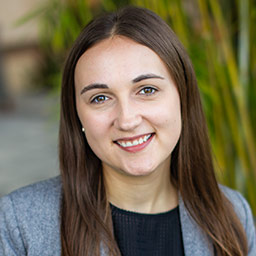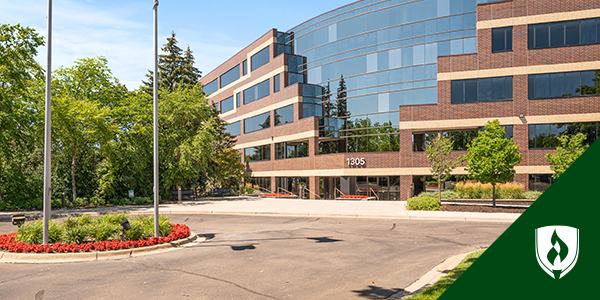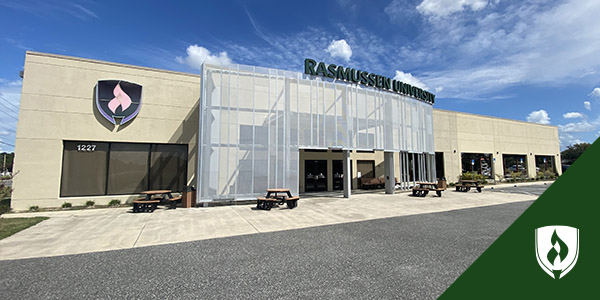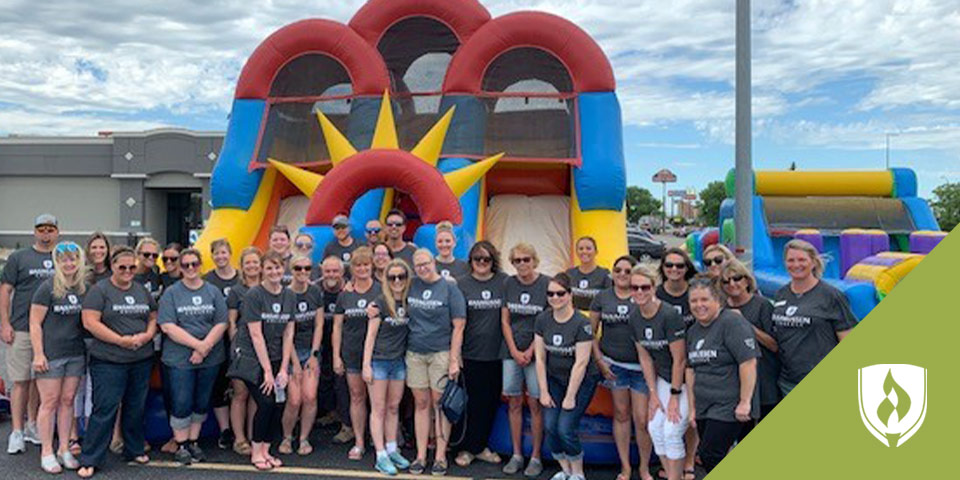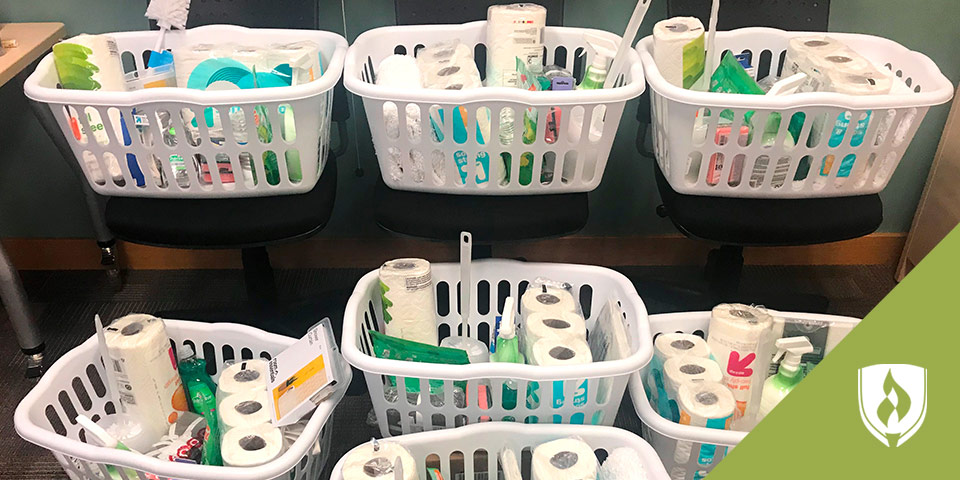On May 5, the Rasmussen College Green Bay campus celebrated the Kentucky Derby in style, complete with big hats and themed refreshments. There were even a few horse-related injuries—to the mannequins in the new nursing simulation lab, that is. The Off to the Races event celebrated the grand opening of the new Green Bay campus nursing simulation lab. Community members, students, faculty and staff were welcomed to tour the space and to hear College and community leaders discuss how the lab will help advance the academic journey for current and future nursing students.
The new nursing simulation lab elevates the classroom experience for students and their instructors. Current Rasmussen College nursing student and Campus Ambassador, Christine Halbfoerster, says “the lab allows students to learn proper procedures in a place where there is room to make mistakes without ever putting a real patient in jeopardy.”
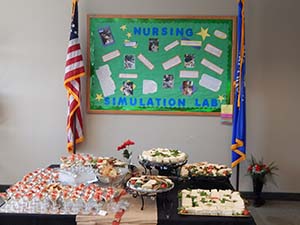
The simulation lab features multiple mannequins that are controlled by instructors behind an observation mirror. The instructors are able to elicit responses from the mannequins, making them undergo different cycles of distress with varying symptoms. Instructors can speak through the mannequins and answer the student questions, similar to how a patient would respond to a nurse in that situation. The ability for the instructor to influence the mannequins allows the situation to escalate or de-escalate according to how the student addresses the patient.
Halbfoerster explains how one of the mannequins, the “sim mom, can simulate a level of distress that causes its water to break while students are performing an exam. In one simulation, the birthing mom experiences injuries due to a car accident. The accident causes distress for both mother and child forcing her into labor. As a student, having to make medical decisions in this sort of pressure-filled simulation mirrors real-life experiences.” This is what Halbfoerster finds intimidating, yet exhilarating about the new lab.
Nursing students use the simulation lab in multiple courses throughout their program. Students use the space most frequently during the quarter prior to their clinical rotations. By practicing in the lab before working in a clinical setting with real patients, students often feel more confident and prepared. “It’s the closest thing to a real-life experience while maintaining a controlled environment,” Halbfoerster says. Rasmussen College Dean of Nursing, Julie Williams, says, “simulation takes some of the scariness out of nursing before students enter the real world.” Learning from simulations helps prepare students for situations where they may make an error, such as overprescribing medication, and allows them to make mistakes in a monitored setting. “Our instructors are able to intervene during a simulation and can provide guidance and feedback as needed,” Halbfoerster says.
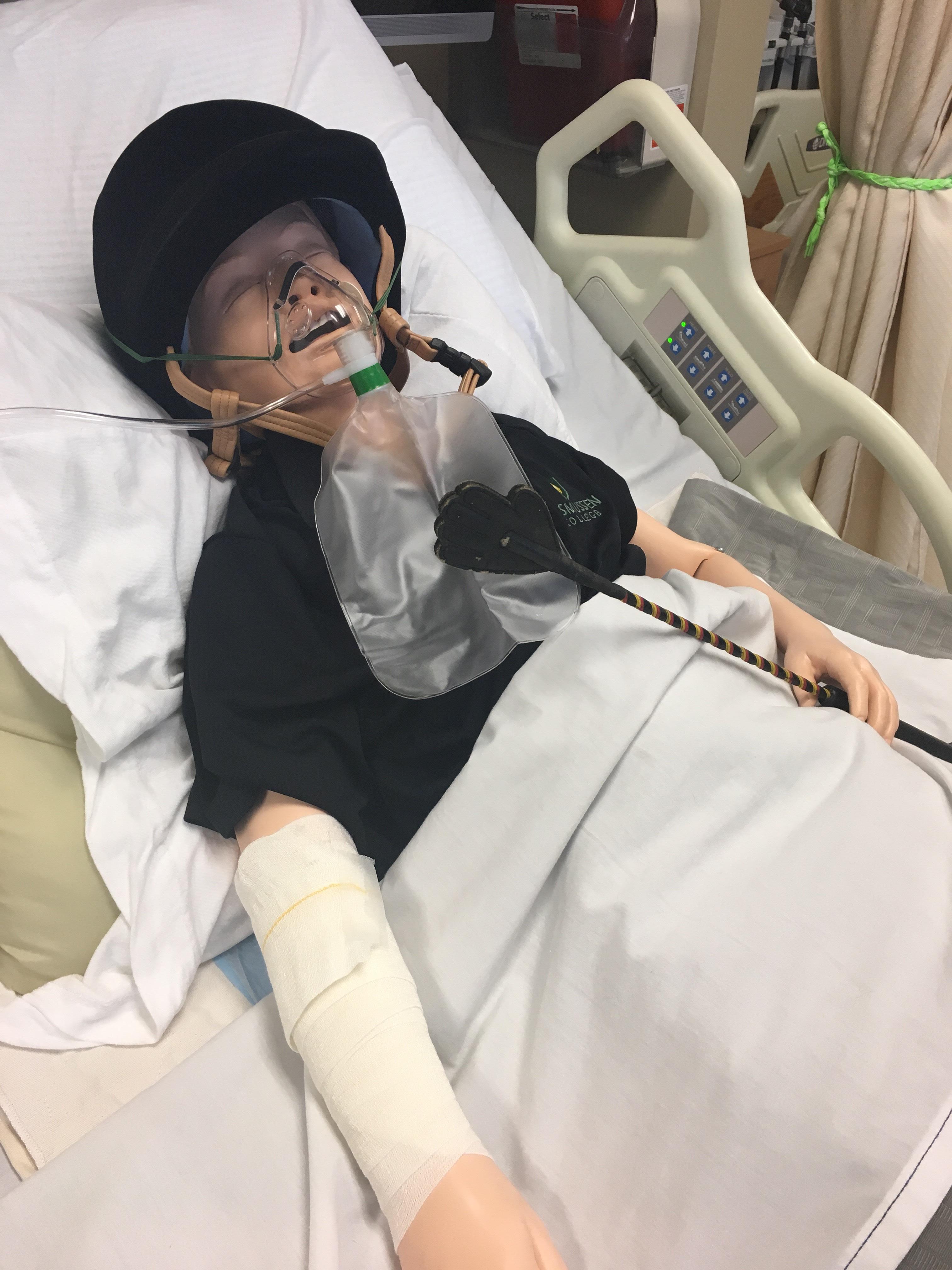
The students are not the only ones benefiting from the new nursing simulation lab. Faculty members have also been eager to utilize the space. Williams says, “The faculty are excited to be able to teach with cutting-edge resources.” Faculty members feel the new technology helps them better prepare their students for working in the field after college. Williams says, “The new space will help advance the nursing journey for our current and future students by utilizing cutting-edge technology to mirror real life experiences.” Williams believes the new space puts the Rasmussen College School of Nursing on the forefront of nursing programs.
Along with celebrating the new simulation lab, the Rasmussen College Green Bay campus is excited about their recent programmatic accreditation from the Accreditation Commission for Education in Nursing (ACEN) for their Professional Nursing Associate’s degree program.* This accreditation signifies the nursing program has met or exceeded standards and criteria for education quality in nursing curriculum and preparation for students to work successfully in the profession. “The faculty have worked long and hard to make sure the program exceeds standards,” says Williams. Faculty and students are excited to receive this accreditation. “With word of the recent accreditation, everyone on campus is really excited, and I am even more thrilled to say I will be graduating from Rasmussen College,” says Halbfoerster.
Williams says, “Rasmussen College is willing to go the extra mile—whether that means getting new simulation equipment, updating programs or pursuing accreditation—to make sure students get the best education.”
For more information on the Rasmussen College School of Nursing, click here.
*The Rasmussen College Professional Nursing Associate’s Degree program in Green Bay, Wisconsin is accredited by the Accreditation Commission for Education in Nursing (ACEN), 3390 Peachtree Road NE, Suite 1400, Atlanta, GA 30326; 404-975-5000. acenursing.org.


